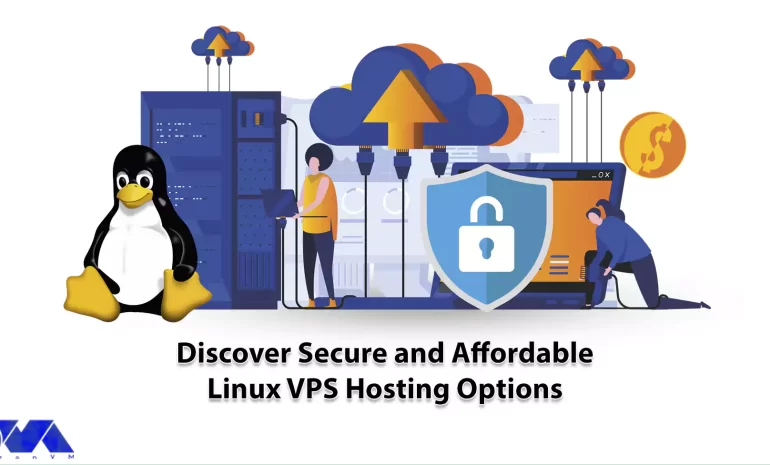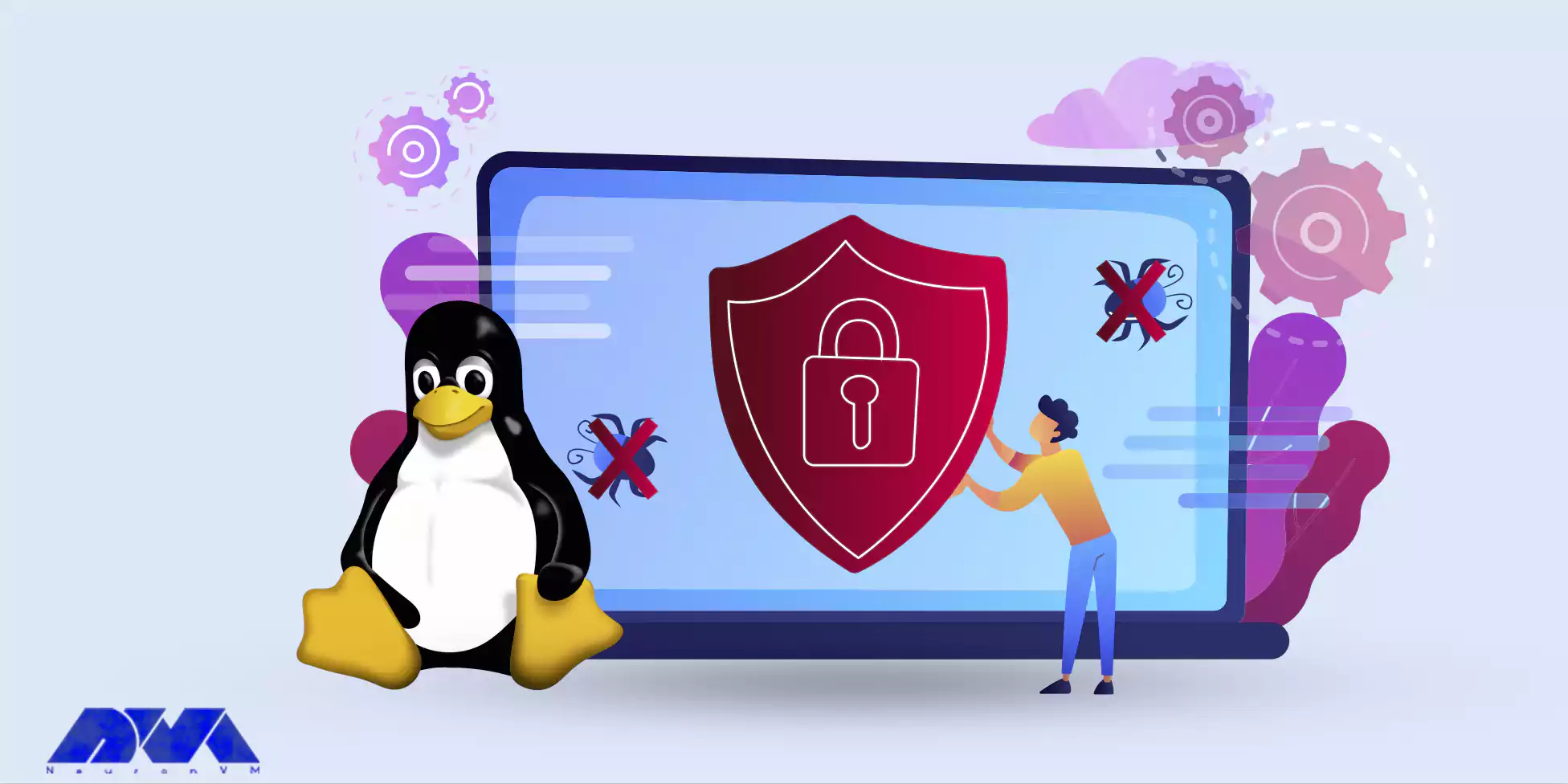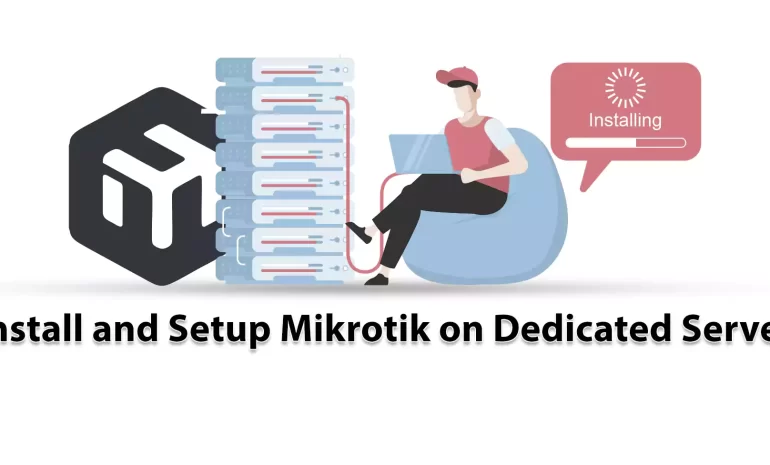






When it comes to hosting a Virtual Private Server or VPS with a Linux operating system, you have several options to choose from. VPS hosting provides you with more control, flexibility, and scalability compared to shared hosting. Also note that when choosing a Linux VPS hosting provider, consider factors such as budget, technical expertise, your preferred specific Linux distribution, server location, scalability options, and customer support. Here we will help you discover secure and affordable Linux VPS hosting options, so keep studying.
Linux VPS hosting is a popular choice for hosting websites, applications, and services on the internet. It combines the flexibility and control of a dedicated server with the cost-effectiveness of shared hosting. It is a popular choice for VPS hosting due to its security and open-source nature. Common Linux distributions used for VPS hosting include Ubuntu, CentOS, Debian, and Fedora.
Linux VPS hosting can be an excellent choice for individuals, businesses, and developers looking for a flexible, cost-effective, and highly customizable hosting solution. However, it does require some technical expertise for setup and maintenance, so consider your own skill level and needs when choosing a hosting solution.

In comparison to shared hosting, it should be said that a Linux virtual private server offers more control, more security, and better performance. Let’s analyze key features and important options that encourage you to buy Linux VPS hosting. You can purchase this great service from NeuronVM, which is one of the most reliable providers with a variety of VPS and dedicated servers.
We may have already mentioned that Linux server offers more control and flexibility than shared hosting. At the same time, you will have root access, and you can install all the programs and software you need.
Another feature of these virtual servers is the ability to configure the server settings according to the user’s desired specifications. Using Linux hosting provides you with the use of resources in a dedicated way, which means you don’t have to share CPU or RAM. This is reassuring because there is less competition for the same resources.
Also, maintain detailed documentation of your server configurations, settings, and procedures. This is invaluable for troubleshooting and future reference.
Having great control and flexibility on a Linux VPS requires a combination of technical knowledge, regular maintenance, and proactive monitoring. It’s important to strike a balance between control and security, ensuring that your server remains stable and protected while still meeting your specific needs.
Scalability in the context of a Linux VPS refers to the ability to easily and efficiently handle increasing workloads, traffic, and resource demands as your needs grow. It is obvious that you need to expand your website. Linux hosting provides you with a lot of scalability in this field.
So, you can have more resources with less cost and less effort. Dedicated resources allow you to use them as much as you need. Achieving scalability in a Linux VPS involves several aspects:
– Vertical Scalability: This involves increasing the resources (CPU, RAM, storage) of your VPS by upgrading the plan or instance.
– Horizontal Scalability: This involves adding more VPS instances to distribute the workload. You can use load balancers to distribute incoming requests among multiple VPS instances. This is a common strategy for handling high-traffic websites or applications.
– Auto-scaling: Some VPS providers offer auto-scaling features, where the number of VPS instances automatically adjusts based on traffic or resource usage.
– Database Scalability: Scaling your database is often a significant part of scalability.
As you scale, security becomes even more critical. Implement robust security measures, including firewalls, intrusion detection systems, and regular security audits, to protect your VPS infrastructure.
If you want to have access to more resources and more power than shared hosting but can’t spend a lot of money, the best option for you is Linux virtual servers. There are several reasons why Linux VPS is cost-effective:

– Linux is an open-source operating system, which means it is freely available to anyone.
– With Linux, you are not tied to a single vendor. You can choose from various distributions (distros) and software packages, which fosters competition and can lead to cost savings.
– Linux can run on a wide range of hardware, including older or less powerful machines.
– Linux is known for its security and stability, which can reduce the costs associated with system downtime, data breaches, and malware infections.
– Many Linux distributions offer LTS releases with extended support periods, often up to five years or more. This reduces the need for frequent OS upgrades and associated costs.
When considering all the factors mentioned above, Linux often results in a lower TCO compared to proprietary alternatives. While initial setup and training costs may vary, the long-term savings can be substantial.
Securing a Linux VPS is crucial to protect your data and server from potential threats and attacks. Here are some high-security features and best practices you can implement on a Linux VPS:
– Firewall Configuration: Use a firewall like iptables or a more user-friendly front-end like ufw to control incoming and outgoing traffic.
– SSH Hardening: Secure SSH access by disabling root login, using key-based authentication, and changing the default SSH port (if applicable).
– Regular Updates: Keep the server’s software and packages up to date by regularly applying security updates.
– Fail2Ban: Install and configure Fail2Ban to block repeated login attempts from malicious IP addresses. This helps prevent brute force attacks on SSH and other services.
– Web Application Firewall (WAF): If you’re hosting web applications, consider using a WAF like ModSecurity to protect against web-based attacks, such as SQL injection and XSS.
– File System Hardening: Use file system permissions (chmod, chown) to limit access to critical system files and directories. Implement the principle of least privilege.
These are some of the practices to have a highly secured Linux VPS. Train yourself and your team on best security practices to minimize the risk of human error.
Now that you realize how beneficial Linux VPS is and how it can improve your programs and website Let’s find out about the step-by-step instructions to get one:
To get a full guide about buying Linux VPS from NeuronVM, refer to the official page or study the article The Cost-Saving Benefits of Buying Linux VPS.
To make the most of your Linux VPS hosting, it’s important to follow best practices for security, performance, and management. Here are some key recommendations:
– Select a reputable hosting provider that offers good uptime guarantees, customer support, and a range of Linux distributions to choose from.
– Choose a Linux distribution that suits your needs and expertise. Popular choices include Ubuntu, CentOS, Debian, and Fedora. Ensure that the distribution is regularly updated for security patches.
– Use the package manager of your chosen Linux distribution (e.g., apt, yum, or dnf) to automate updates.
– Configure a firewall (e.g., iptables or firewalld) to restrict incoming and outgoing traffic. Allow only the necessary ports for your applications and services.
– Consider using tools like Fail2ban to protect against brute-force attacks.
– Implement a robust backup strategy to protect your data. Create automated backups and store them offsite for disaster recovery.
– Setup monitoring tools (e.g., Nagios, Zabbix, or Prometheus) to track server performance, resource usage, and security events. Configure alerts to notify you of any issues.
– Monitor and optimize resource usage (CPU, RAM, and disk space) to ensure optimal server performance. Tools like htop and sysstat can help with this.
– Periodically review your server for unused software, files, and accounts. Remove anything unnecessary to reduce the attack surface and improve performance.
– Use containerization technologies like Docker or virtualization with solutions like KVM or VirtualBox to isolate applications and services for better security and resource management.
– Limit SSH access to only trusted IP addresses, use strong SSH keys, and disable password-based authentication to protect against unauthorized access.
– Consider using a control panel like cPanel, Plesk, or Webmin to simplify server administration tasks.
Linux VPS hosting can be an excellent choice for individuals, businesses, and developers looking for a flexible, cost-effective, and highly customizable hosting solution. However, it does require some technical expertise for setup and maintenance, so consider your skill level and needs when choosing a hosting solution. We hope this content was useful for you. Please comment if there are any ideas or questions.
How useful was this post?
Click on a star to rate it!
Average rating 5 / 5. Vote count: 1
No votes so far! Be the first to rate this post.
 Tags
Tags

This article aims to provide a comprehensive guide on the top USA RDP Providers you need to know abo...



 Tags
Tags

MikroTik is a Linux-based operating system known as MikroTik RouterOS, and by installing it on the d...



 Tags
Tags
What is your opinion about this Blog?








